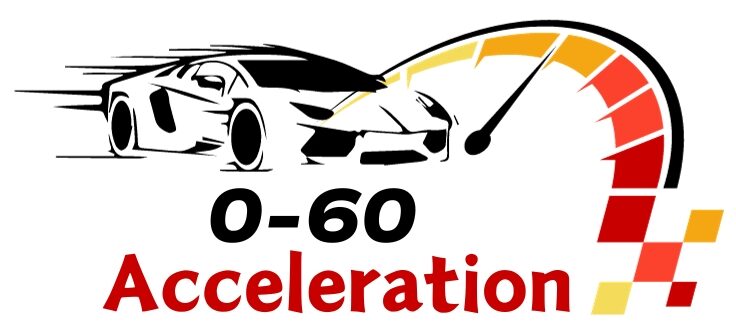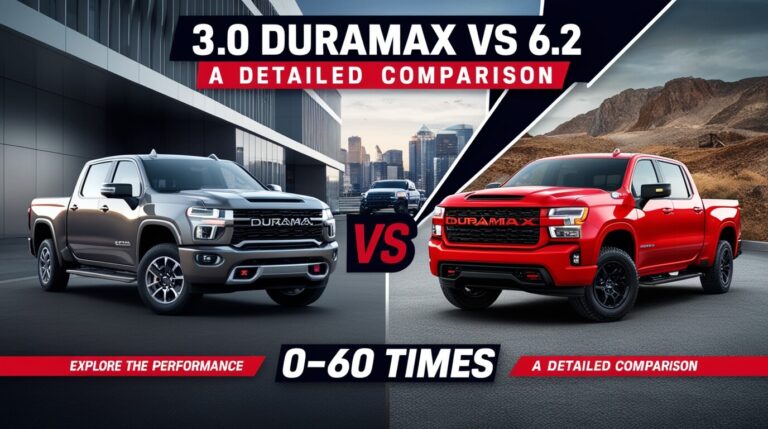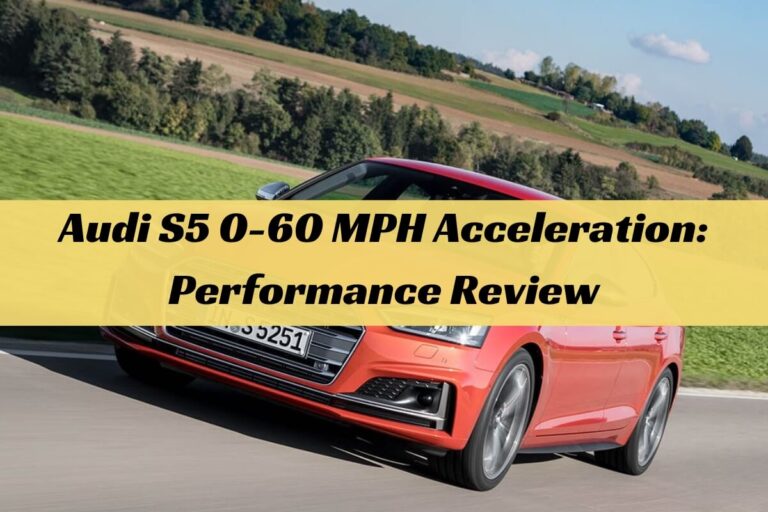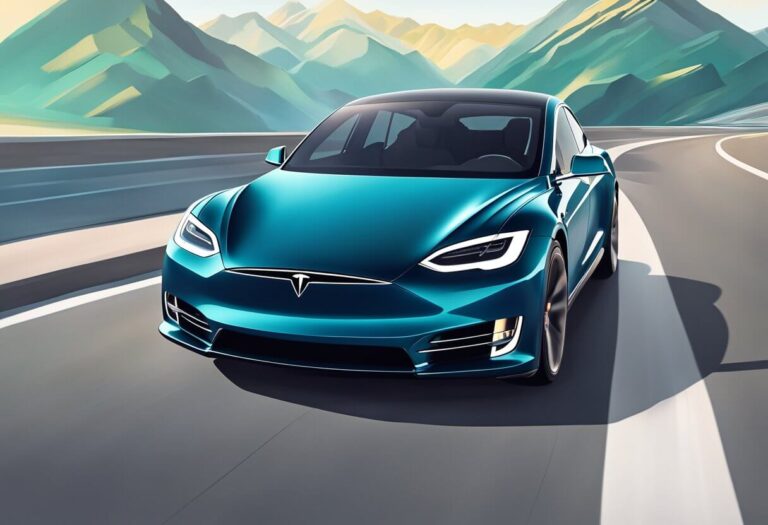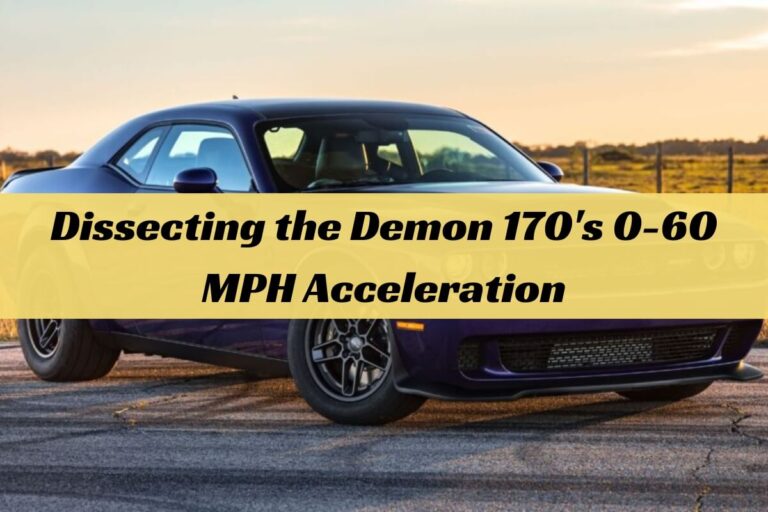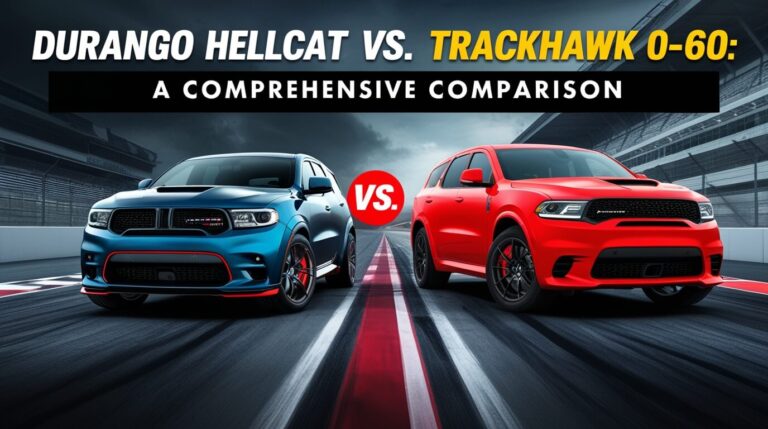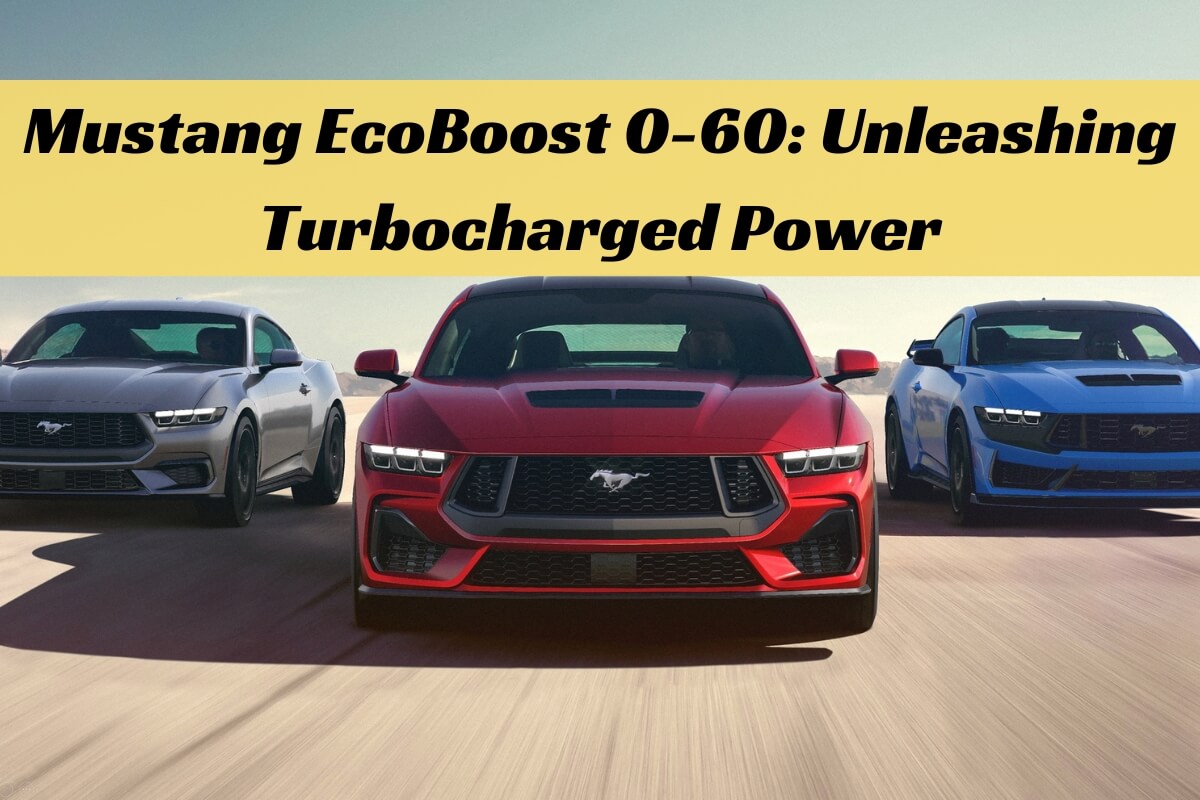
The Ford Mustang is an icon of American muscle cars, known for its powerful engines and exhilarating performance. The EcoBoost variant, introduced in recent years, packs a turbocharged punch that delivers impressive acceleration while also offering improved fuel efficiency. If you’re curious about the Mustang EcoBoost 0-60 time and its overall acceleration capabilities, you’ve come to the right place.
The Mustang EcoBoost: A Powerful Pony Car
The Mustang EcoBoost is a modern interpretation of the classic pony car, blending Ford’s rich heritage with cutting-edge technology. Under the hood lies a 2.3-liter EcoBoost turbocharged four-cylinder engine that produces an impressive 310 horsepower and 350 lb-ft of torque. This powerful yet efficient engine is mated to either a six-speed manual or a ten-speed automatic transmission, both of which are designed to provide a thrilling driving experience.
One of the key features contributing to the Mustang EcoBoost’s performance is Ford’s advanced EcoBoost technology. This system combines direct fuel injection, turbocharging, and advanced combustion strategies to optimize power output while improving fuel efficiency. Additionally, the Mustang EcoBoost benefits from a lightweight yet rigid chassis, precise steering, and advanced traction control systems, all of which contribute to its impressive acceleration capabilities.
Pricing and Availability
The Ford Mustang EcoBoost is available in various trim levels, catering to a wide range of budgets and preferences. The base model, known as the EcoBoost Fastback, starts at around $27,000 MSRP, making it an attractive option for enthusiasts seeking a blend of performance and affordability.
Higher trim levels, such as the EcoBoost Premium and the EcoBoost High Performance Package, offer additional features and performance upgrades, with prices ranging from $30,000 to $35,000, depending on the chosen options and packages.
The Mustang EcoBoost is available across the United States and in several international markets, including Canada, Mexico, and select countries in Europe and Asia.
Acceleration Performance
Now, let’s dive into the heart of the matter: the Mustang EcoBoost’s acceleration performance. According to independent tests and reviews, the EcoBoost Mustang can accelerate from 0 to 60 mph (0 to 96 km/h) in just 5.1 seconds. This impressive feat is achieved thanks to the combination of the turbocharged engine’s power delivery and the vehicle’s well-tuned transmission and traction control systems.
When it comes to quarter-mile performance, the Mustang EcoBoost can complete the run in approximately 13.7 seconds, crossing the finish line at a speed of around 100 mph (161 km/h).
Here’s a table summarizing the key specifications that contribute to the Mustang EcoBoost’s acceleration:
| Feature | Specification |
|---|---|
| Engine | 2.3L EcoBoost Turbocharged I-4 |
| Horsepower | 310 hp @ 5,500 rpm |
| Torque | 350 lb-ft @ 3,000 rpm |
| Transmission | 6-speed manual or 10-speed automatic |
| Drivetrain | Rear-wheel drive |
| Curb Weight (approx.) | 3,600 lbs (1,633 kg) |
Factors Influencing Acceleration
Several factors contribute to the Mustang EcoBoost’s impressive acceleration capabilities. First and foremost, the turbocharged engine’s power and torque output play a crucial role. The EcoBoost engine delivers a broad powerband, providing ample thrust across a wide rev range.
Additionally, the transmission choices – a slick-shifting six-speed manual or the lightning-quick ten-speed automatic – ensure that power is efficiently transferred to the rear wheels. The Mustang’s advanced traction control system and launch control feature (available on certain models) also help maximize traction and ensure optimal acceleration from a standstill.
Other factors, such as the vehicle’s weight distribution, aerodynamics, and tire choices, also contribute to the overall acceleration performance. Ford engineers have meticulously optimized these aspects to ensure that the Mustang EcoBoost delivers a well-rounded and exhilarating driving experience.
Owner Reviews and Impressions
Owners of the Mustang EcoBoost have shared their experiences and impressions of the vehicle’s acceleration capabilities. Many praise the car’s responsiveness and the gratifying surge of power when the turbocharger kicks in. Others appreciate the balance between performance and fuel efficiency, making the EcoBoost a practical choice for daily driving.
However, some owners have expressed concerns about the EcoBoost’s relatively modest power output compared to the Mustang GT’s V8 engine. While the EcoBoost offers impressive acceleration for its class, some enthusiasts may crave the raw power and visceral experience of a larger displacement engine.
Competitive Comparison
When comparing the Mustang EcoBoost’s acceleration to its competitors, it holds its own against other sports cars and muscle cars in its price range. For example, the Chevrolet Camaro with a turbocharged four-cylinder engine has a similar 0-60 mph time of around 5.2 seconds. The Dodge Challenger, with its larger V6 engine, lags slightly behind with a 0-60 mph time of around 6.0 seconds.
However, it’s important to note that the Mustang EcoBoost’s true competitors may be found in the realm of compact and midsize sports cars, such as the Subaru WRX, BMW 2 Series, and Hyundai Veloster N. These vehicles offer similar power outputs and acceleration times while boasting their own unique characteristics and driving dynamics.
Modifications and Performance Enhancements
While the Mustang EcoBoost delivers impressive acceleration straight from the factory, enthusiasts and tuners have explored various modifications to further enhance its performance. Popular upgrades include:
- Cold air intakes: Allowing the engine to breathe more freely and maximizing the turbocharger’s efficiency.
- Exhaust systems: Aftermarket exhaust systems can reduce backpressure and improve exhaust flow, resulting in gains in horsepower and torque.
- Tuning and calibration: ECU tuning and calibration can optimize ignition timing, fuel delivery, and other parameters to unlock additional power potential.
- Lightweight wheels and tires: Upgrading to lightweight wheels and high-performance tires can improve acceleration by reducing unsprung weight and increasing traction.
It’s important to note that while modifications can enhance performance, they may also impact the vehicle’s warranty and emissions compliance. Consulting with reputable tuners and following proper installation procedures is crucial to ensure the safety and reliability of your Mustang EcoBoost.
Pros and Cons of the EcoBoost Mustang’s Acceleration
Like any vehicle, the Mustang EcoBoost’s acceleration capabilities come with their own set of pros and cons. Here’s a quick overview:
Pros:
- Impressive acceleration for a turbocharged four-cylinder engine
- Excellent power-to-weight ratio, contributing to nimble handling
- Fuel-efficient compared to larger displacement engines
- Affordable pricing, especially for the base EcoBoost model
Cons:
- Lacks the raw power and visceral experience of the Mustang GT’s V8 engine
- Turbo lag can be noticeable, especially when accelerating from low speeds
- Potential for increased maintenance costs due to the complexity of the turbocharging system
- Some enthusiasts may perceive the EcoBoost as lacking the “true” Mustang experience
Overall, the Mustang EcoBoost’s acceleration strikes a balanced compromise between performance and practicality, making it an attractive choice for those seeking a fun and capable sports car without the added expense and fuel consumption of a larger engine.
Alternative Vehicles with Similar Acceleration
If the Mustang EcoBoost doesn’t quite meet your acceleration needs or preferences, there are several alternative vehicles worth considering. Here are a few options that offer similar acceleration performance:
- Subaru WRX: With its turbocharged 2.0-liter boxer engine and all-wheel-drive system, the WRX can accelerate from 0-60 mph in around 5.0 seconds.
- Hyundai Veloster N: This hot hatch packs a 2.0-liter turbocharged engine that propels it from 0-60 mph in around 5.5 seconds, offering a thrilling driving experience with its unique three-door design.
- Volkswagen Golf GTI: The iconic hot hatch from Volkswagen, with its turbocharged 2.0-liter engine and responsive handling, can reach 60 mph from a standstill in approximately 5.7 seconds.
- Honda Civic Si: While not the most powerful in its class, the Civic Si’s 1.5-liter turbocharged engine and lightweight chassis allow it to sprint from 0-60 mph in around 6.5 seconds, making it an affordable and practical choice for those seeking a balanced driving experience.
These alternatives offer their own unique characteristics, from all-wheel-drive traction to hot hatch versatility, while delivering acceleration times comparable to the Mustang EcoBoost.
Who Should Consider the EcoBoost Mustang?
The Ford Mustang EcoBoost is an excellent choice for a wide range of drivers seeking a balance of performance, affordability, and practicality. Here’s who might find the EcoBoost Mustang particularly appealing:
- Enthusiasts on a budget: The Mustang EcoBoost offers thrilling acceleration and driving dynamics at a more attainable price point compared to its V8 counterpart or other high-performance sports cars.
- Daily drivers: With its decent fuel efficiency and comfortable interior, the EcoBoost Mustang can serve as a daily driver while still providing an engaging driving experience when desired.
- City dwellers: The EcoBoost’s smaller turbocharged engine and nimble handling make it well-suited for navigating urban environments and tight parking spaces.
- Practical performance seekers: If you value a blend of performance and practicality, the Mustang EcoBoost delivers both in a stylish and affordable package.
However, those seeking the ultimate in raw power and visceral driving experiences may want to consider the Mustang GT or other high-performance sports cars with larger displacement engines.
Troubleshooting and Maintenance
While the Mustang EcoBoost is generally reliable and well-engineered, like any performance vehicle, it may encounter issues that can affect its acceleration capabilities. Here are some common problems and their solutions:
- Carbon buildup: The EcoBoost engine’s direct injection system can lead to carbon buildup on intake valves, reducing airflow and performance. Regular fuel system cleaners or professional walnut blasting can help mitigate this issue.
- Turbocharger issues: Worn or faulty turbochargers can result in reduced boost pressure and power output. Regular maintenance and timely replacement of turbocharger components are essential.
- Transmission problems: Issues with the transmission, such as slipping clutches or faulty solenoids, can negatively impact acceleration. Professional diagnosis and repair are recommended.
To maintain optimal performance, it’s crucial to follow the recommended maintenance schedule for your Mustang EcoBoost. This includes regular oil changes, filter replacements, and inspections of critical components like the turbocharger, fuel system, and transmission.
Frequently Asked Questions
How does the Mustang EcoBoost’s acceleration compare to the Mustang GT?
While the EcoBoost offers impressive acceleration for a turbocharged four-cylinder engine, the Mustang GT’s larger V8 engine provides a noticeable advantage in terms of raw acceleration and top-end performance. However, the EcoBoost’s power-to-weight ratio and nimble handling make it a more well-rounded daily driver.
Can the Mustang EcoBoost’s acceleration be improved with modifications?
Absolutely. Various modifications, such as cold air intakes, exhaust systems, and ECU tuning, can unlock additional power and torque, resulting in improved acceleration times. However, it’s essential to consult with reputable tuners and follow proper installation procedures to maintain reliability and warranty coverage.
How does the Mustang EcoBoost’s fuel efficiency compare to other performance cars?
Thanks to its turbocharged four-cylinder engine and advanced EcoBoost technology, the Mustang EcoBoost offers better fuel efficiency than its V8 counterparts and many other performance cars in its class. Owners can expect to achieve around 20-25 mpg in combined city/highway driving with the EcoBoost engine.
Is the Mustang EcoBoost suitable for track use?
While the Mustang EcoBoost is primarily designed for street use, it can certainly handle occasional track days or spirited driving on winding roads. However, for extended track use or racing applications, the more powerful and robust Mustang GT or dedicated track-focused models might be better suited.
Final Thoughts
The Ford Mustang EcoBoost is a testament to the automaker’s commitment to delivering exhilarating performance while embracing modern efficiency and technology. With its impressive 0-60 mph time and quarter-mile acceleration, the EcoBoost variant proves that you don’t need a large displacement engine to experience the thrill of a true sports car.
Whether you’re a seasoned enthusiast or a newcomer to the world of performance driving, the Mustang EcoBoost offers an accessible and well-rounded package that combines acceleration, handling, and practicality. Its affordability and decent fuel efficiency make it a compelling choice for those seeking a daily driver with a sporty edge.
While it may not match the raw power and visceral experience of its V8 counterpart, the EcoBoost Mustang carves out its own niche as a balanced and capable sports car that delivers an exhilarating driving experience without breaking the bank.
So, if you’re in the market for a performance car that can tackle your daily commute while also unleashing its acceleration prowess on demand, the Mustang EcoBoost is definitely worth considering. Just remember to enjoy the ride and always drive responsibly!
